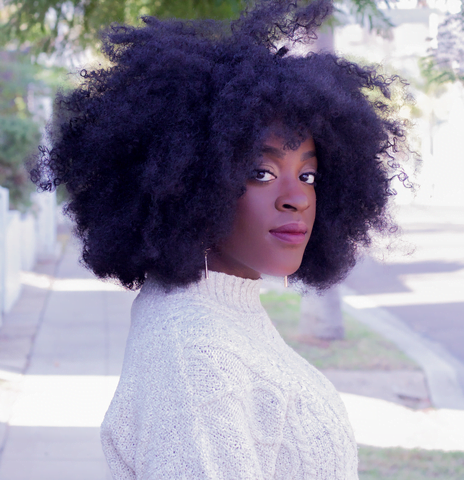 A globetrotting traveller has made over a million pounds from blogging all over the world.
A globetrotting traveller has made over a million pounds from blogging all over the world.
Johnny Ward, 33, went from backpacker to big money media boss all the while ticking off every country on the planet thanks to advertising on his first blog.
The on-the-go millionaire says he has been living the dream since quitting his job and travelling to every country in the world, all while earning £1,500,000 from blogging.

Johnny Ward, 33, went from backpacker to big money media boss all the while ticking off every country on the planet thanks to advertising on his first blog. He’s pictured here in Kabul, Afghanistan

The on-the-go millionaire says he has been living the dream since quitting his job and travelling to every country in the world, all while earning £1,500,000 from blogging. He’s pictured here at Leptis Magna in Libya
Johnny was born in Galway, Ireland, but moved to County Down in Northern Ireland as a child where he grew up not being able to afford a family holiday. He’s pictured here in Yemen
Johnny originally dreamed of becoming a footballer – but knew at 13 that he’d never cut it. So he focussed on becoming a success in the business world instead. He’s pictured here in Afghanistan
Johnny said: ‘I had just quit my one and only real job in Sydney, Australia, in a blaze of glory to travel the world and be a blogger.
‘When an advertiser finally contacted me six months in, I thought it was my friends joking with me but thankfully the advertiser wasn’t scared off by my weird reply and we closed the deal.
‘My sleep pattern is all over the place from working and partying late to waking up at weird times for flights and business calls so I never really have a pattern.’
Johnny was born in Galway, Ireland, but moved to County Down in Northern Ireland as a child where he grew up not being able to afford a family holiday.
Johnny got the idea for his million-pound business when working full time in Sydney and with the money he made from that he booked a one-way ticket to Zimbabwe and started blogging more seriously

The first version of Johnny’s website was made by a man in the Philippines for £100. Johnny is pictured here in that country, in Palawan

Johnny’s travels have taken him to every corner of the globe, including unstable parts such as Somalia, pictured

Speaking about how he made his fortune, Johnny said: ‘I started my travel blog, started making around $7,000 per month from that site, so I started a few more blogs, and hired a couple of writers, before long I was making $50,000 per month’. Here he is at Darvaza Crater Gates of Hell in Turkmenistan
Without the bank of mum and dad to support a ‘gap yah’ Johnny offered his body to a medical trial to afford flights out East where he earned more by teaching English after graduation.
He said: ‘The medical trial was my only way to generate a decent amount of funds in a short period of time!
‘I had worked on American summer camps with disabled kids and disadvantaged kids each summer, which whetted my travel appetite.
‘This time university had finished so I had to do something drastic to allow me to start a new travel lifestyle.
‘I come from a poor, single parent home and we grew up on benefits so my mum couldn’t fund my “gap year”, therefore medical research and then teaching English in Thailand were my route to a new, adventurous lifestyle.’
Johnny got the idea for his million-pound business when working full time in Sydney and with the money he made from that he booked a one-way ticket to Zimbabwe and started blogging more seriously.
The Irishman claims advertising has allowed him to blog around the world and make £1.5million in the process thanks to the first website he paid a man in the Philippines £100 to make.
He said: ‘I started my travel blog, started making around $7,000 per month from that site, so I started a few more blogs, and hired a couple of writers, before long I was making $50,000 per month.

Johnny’s advice to aspiring bloggers is ‘to have a story to tell’
‘I invest my money, mostly in property, and I’m careful with my revenue.
‘I haven’t met the guy who set up my first website since he did it but we’re still friends on Facebook.
‘As soon as I started making money online from blogging I decided to visit every country in the world, and it’s been the most amazing journey imaginable.
‘Other than being a footballer, which at about age 13 I knew was clearly not going to happen, I wanted to be a businessman.
‘I’m still only a small part through my own personal journey, onwards and upwards I hope.
‘I’m really close to my mum and sister, so I talk to them a lot and now I have some money I see them a lot more, but those first five broke years of travel were tough in terms of that.
‘When I was 24 or 25 it was easier to get my friends to come and visit me, then hitting 30 they all had mortgages, engagements and kids so it became progressively more difficult for me to convince them to join me.’
Having travelled to every country in the world at least once, Johnny certainly has seen a few shocking sights, none more so than a murder right before his eyes.
He said: ‘Mauritania, West Africa, has a bad reputation but it was amazing, the people were so warm and welcoming not to mention the landscapes and stuff to do there, which was mind blowing.
‘The friendliest people I came across were probably in Algeria or Iran, maybe the Philippines too.
‘My most frightening experience was definitely watching a guy get shot twice right in front of me, 20 minutes after landing in Angola.’
What top tips do you have for running a travel blog?
Be different. A four-month gap year in South East Asia and Australia will be an awesome experience, so much fun and you’ll meet friends for life but no one wants to read the same stories about Sydney, Bangkok and Singapore, they’ve heard it all before.
So why should people read your stuff? What’s your angle? How are you different? Every man and his dog has a blog now, but if you want it to gain traction you have to have a story to tell, and a gap year in Thailand won’t cut it.
What tips do you have for gaining followers?
You have to love social media, interacting with people. Some people love it, some don’t.
For me, it gives me energy to help inspire strangers to travel the world, it picks me up when I’m weary from the road. But if you find it a chore, then it’ll never fly. So be honest, be regular and be committed.
How do you make money from the blog and how much have you managed to get from blogging since it started?
When I first started my blog in 2010, I didn’t understand anything about SEO, online marketing, internet advertising etc but after six months or so in Africa a company contacted me and asked for a advert, they paid about £40 and it was a huge turning point in my life – I finally believed it was possible to work for myself, make money online and be truly free.
From there it increased month on month, until it was about £4,000 a month.
After partying a bit too hard in Thailand, it dawned on me that if I can monetize one website, why not three or five or 50! So then I expanded my portfolio of websites.
Then in the past few years I’ve made over $1m (I use $ because clients generally negotiate and pay in USD).
Do you have any tips for securing flight upgrades or discounted stays?
If your travel blog is popular, you honestly, honestly will never have to pay for another hotel again in your life – madness, but true.
Do you have any other source of income?
When things started going ok for me I contacted a wealth manager so I have a stock portfolio, and I try to invest in property too, but I’m clueless about it so it’s a big learning curve for me!
[“Source-dailymail”]


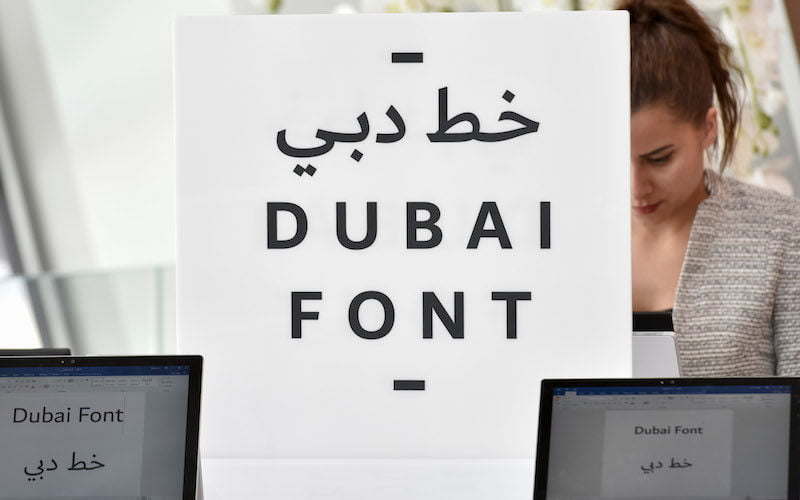










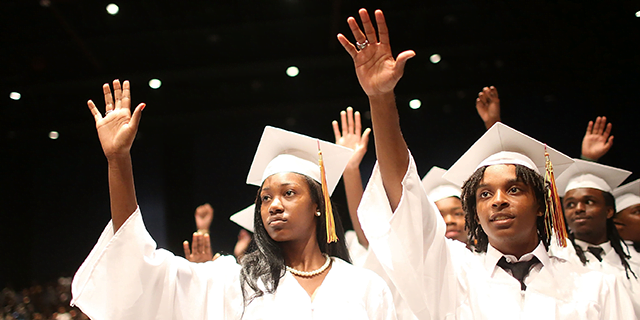

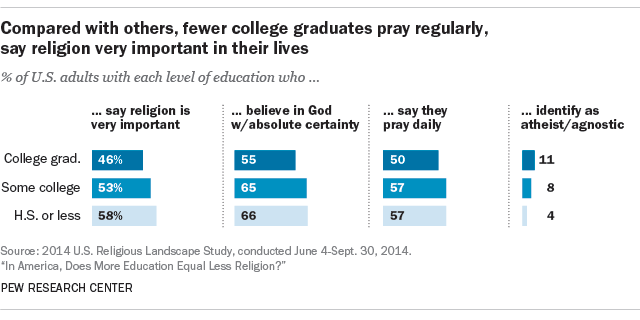

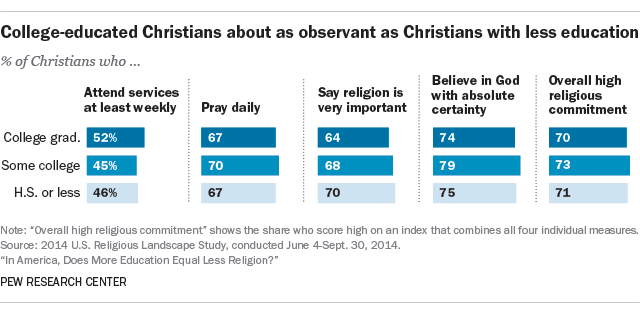

 The tendency for Christian college graduates to exhibit rates of religious observance that are at least on par with their less highly educated counterparts is evident across a variety of Christian traditions. Among evangelical Protestants, for instance, 87% of college graduates are highly religious, according to the four-item index of religious commitment, as are 83% of those with some college and 82% of evangelicals with a high school diploma or less schooling.
The tendency for Christian college graduates to exhibit rates of religious observance that are at least on par with their less highly educated counterparts is evident across a variety of Christian traditions. Among evangelical Protestants, for instance, 87% of college graduates are highly religious, according to the four-item index of religious commitment, as are 83% of those with some college and 82% of evangelicals with a high school diploma or less schooling. While college-educated Christians are about as observant – and sometimes more observant –than Christians with less education, the data show that among the religiously unaffiliated (i.e., those who describe their religious identity as atheist, agnostic or “nothing in particular”), those who have college degrees are considerably less religious than “nones” without a college education.
While college-educated Christians are about as observant – and sometimes more observant –than Christians with less education, the data show that among the religiously unaffiliated (i.e., those who describe their religious identity as atheist, agnostic or “nothing in particular”), those who have college degrees are considerably less religious than “nones” without a college education. As with the religiously unaffiliated, highly educated Jews tend to be less religious than Jews with fewer years of schooling. For instance, Pew Research Center’s 2013 survey of U.S. Jews found that while more than half of Jews who have not completed college say they believe in God with absolute certainty (54%), only about three-in-ten Jewish college graduates say the same (28%). 5 And while about four-in-ten Jews who have not completed college say religion is very important in their lives (39%), only a quarter of Jewish college graduates say religion is very important to them (25%). 6
As with the religiously unaffiliated, highly educated Jews tend to be less religious than Jews with fewer years of schooling. For instance, Pew Research Center’s 2013 survey of U.S. Jews found that while more than half of Jews who have not completed college say they believe in God with absolute certainty (54%), only about three-in-ten Jewish college graduates say the same (28%). 5 And while about four-in-ten Jews who have not completed college say religion is very important in their lives (39%), only a quarter of Jewish college graduates say religion is very important to them (25%). 6 There is no clear pattern when it comes to the relationship between religion and education for U.S. Muslims. 7 According to a 2011 Pew Research Center survey of Muslim Americans, Muslims with a college education and those with no more than a high school education attend mosque and pray at about equal rates: Roughly half of Muslims in both of these educational groups attend services at least once a week, while two-thirds pray some or all of the five salah (Islamic prayers) each day. Nearly all Muslim Americans in each educational category (95% each) say they believe in God. 8
There is no clear pattern when it comes to the relationship between religion and education for U.S. Muslims. 7 According to a 2011 Pew Research Center survey of Muslim Americans, Muslims with a college education and those with no more than a high school education attend mosque and pray at about equal rates: Roughly half of Muslims in both of these educational groups attend services at least once a week, while two-thirds pray some or all of the five salah (Islamic prayers) each day. Nearly all Muslim Americans in each educational category (95% each) say they believe in God. 8